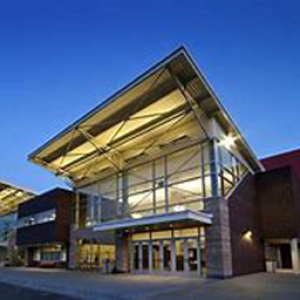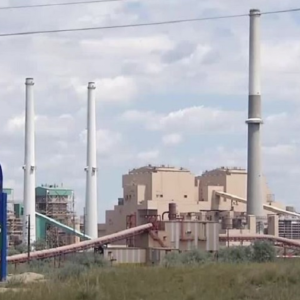The City of Kalispell’s Building Department has issued 234 permits for single family and duplex housing projects. This number is approaching double the 121 permits the department had issued by this time last year. Multi-family permits have increased from 84 multi-family permits during all of 2019 to 132 multi-family housing units approved so far in 2020. compared to 84 multi-family units in all of 2019.
The Montana Department of Public Health and Human Services has lodged complaints against four Flathead County businesses alleging the entities violated COVID-19 directives by failing to ensure employees and patrons wore masks and that the establishments displayed proper signage related to COVID-19 protocols. The lawsuits were filed against Sykes Diner in Kalispell, The Remington Bar in Whitefish and the Ferndale Market and Your Turn Mercantile/Your Lucky Turn Casino in Bigfork. The businesses have been given 21 days to respond to the complaints.
U.S. senators have questioned the chief of Amtrak about job cuts and service reductions on the carrier’s long-distance passenger train routes, including the Empire Builder line that serves a dozen mostly rural communities in northern Montana. Amtrak CEO, William Flynn, testified that ridership remains down about 80% due to the coronavirus pandemic. The coronavirus pandemic forced Amtrak to reduce service on most of its long-distance trains to just three days a week. Flynn sought to assure senators the cuts are intended to be temporary.
Yellowstone National Park announced this week that it will begin testing a low-speed automated shuttle system in 2021. The automated shuttle will serve the Canyon Village campground, visitor services, and the visitor lodging. Canyon Village is a popular area north of Yellowstone Lake. The most popular roads in the park are over capacity by about 29% during July. Those roads include the West Entrance to Madison Junction, Madison Junction to Old Faithful and to Norris Junction, Old Faithful to West Thumb and Norris Junction to Canyon Village. The park has tested out a few different ways to help relieve that congestion, like having extra staff stationed in extra-congested parking areas. A 2019 pilot project at Norris Junction stationed staff to help test the efficiency of the overflow parking on the Grand Loop Road. That project showed that staffing can help visitors safely access areas where parking is limited.
Montana’s unemployment rate returned to a near-normal level of 5.3 percent in September after dropping from 5.6 percent in August. Economists typically consider normal unemployment levels to be between 4 percent to 5 percent. The national unemployment rate has remained higher than Montana’s, at 7.9 percent for September. Montana has the 9th lowest unemployment rate in the nation.
MSU has received a $498,217 grant from the Environmental Protection Agency to help Montana food and beverage manufacturers reduce waste and adopt strategies that can lessen environmental impact. MSU, working with the Montana Pollution Prevention Program and Montana Manufacturing Extension Center, will use the grant to provide small businesses in the food and beverage industry with on-site technical assistance and training on pollution prevention.
Welcome Market Hall, opened in Sheridan, Wyoming last May, a first of its kind concept for visitors and locals to enjoy Sheridan’s finest food and beverage offerings in a unique setting. Market Hall was conceptualized by owner Tom Thomson and Stephanie Stalker who were looking to bring a memorable social experience through good food and great conversation, located inside a historic railroad station originally built in 1912. Renovation of the space was a collaborative effort by Stephanie and her father Dan Stalker, a lifelong Sheridan resident and architect. Guests can choose between six different dining concepts including Scipio’s offering pizza, El Cruce bringing a variety of tacos and tapas, O-Ke-Kai which serves poke bowls and fried seafood favorites; Protein for sandwiches and ribs; WMH Brunch for brunch and lunch. Beverage offerings include coffee shop Up Café; cocktails by CB&Q Lounge, or Grand Bar for beer and wine.
Negotiations are on-going among recreationists, the Crow Tribe, the Forest Service and private landowners, all with interests in the Crazy Mountains. The discussion is hopefully leading to a solution to a long-term conflict over land use in the Crazy Mountains. A community coalition is hoping that a land swap on the east side of the range will alleviate frustrations for all while allowing for more public access. The proposal will give the Forest Service over 5,200 acres of private land, including a new 22-mile trail, paid for by Yellowstone Club in Big Sky, in exchange for 500 acres of expert ski terrain from the Forest Service in Big Sky. Private landowners would get more than 3,600 acres in the land swap, by consolidating public lands already scattered between private lands.
Whole Foods Market is planning their first Montana store in Bozeman at the Gallatin Valley Mall, managed by Steve Corning, as part of the Gallatin Mall Group. Whole Foods Market will join Macy’s, Barnes & Noble, Regal Cinemas and JoAnn Fabrics in anchoring the 365,000 square foot center.
Gallatin County’s residential real estate market saw large increases in pending sales, closed sales and average sales prices in October, while the inventory of available homes decreased significantly in both the single family and condo/townhome markets compared to 2019. Median sales price increased 18.9%, from $462,000 in September 2019 to $550,000 in September 2020. Closed sales increased 46.9%, from 130 to 191, and pending sales jumped 56.6%, from 113 to 177. The inventory of available homes decreased 60.1% compared to last year, from 537 to 214, and the month’s supply of inventory dropped 65%, from 4.0 to 1.4. The number of new single-family listings decreased 3% compared to September 2019, from 167 to 162. The average days on market increased 56.8%, from 37 to 58. Sellers received 99.1% of their list price last month, up slightly from 98.4% last year.




